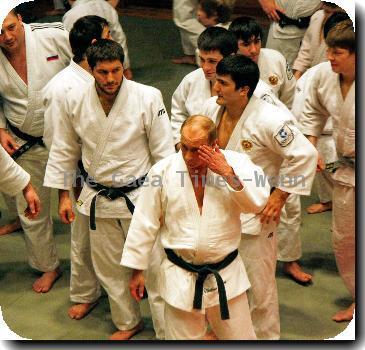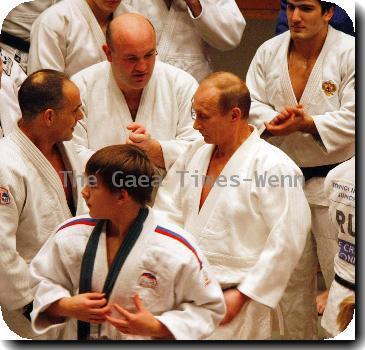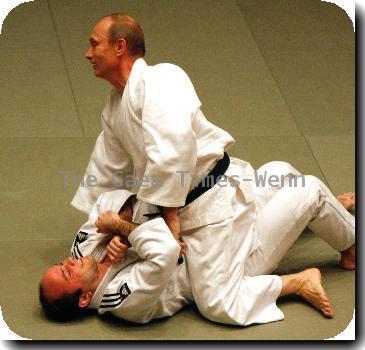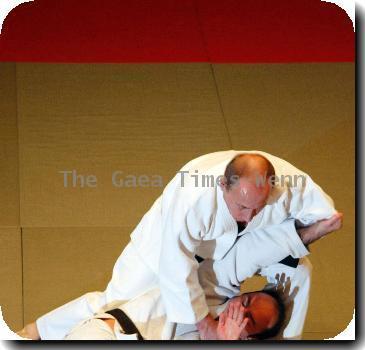Workers commemorate deadly May Day in Turkey, demand job security, better pay accross Asia
By Selcan Hacaoglu, APSaturday, May 1, 2010
Workers demand better jobs, pay on May Day
ISTANBUL — Tens of thousands of workers marched in cities from Hong Kong to Istanbul Saturday to mark international worker’s day, demanding more jobs, better work conditions and higher wages.
About 140,000 jubilant workers gathered in Istanbul’s Taksim Square in the first celebrations at the site since dozens of people died there in a May 1 gathering more than three decades ago.
The demonstrations in Istanbul, which sits on both European and Asian continents, marked a special victory for the Turkish unions, which had been denied access to the Taksim Square since 1977, when 34 people died after shooting triggered a stampede. The culprits were never found and workers demanded Saturday an inquiry into the deaths of the demonstrators.
Most of the annual May Day marches were peaceful, but in the Chinese territory of Macau police used water cannons and pepper spray against rowdy protesters who tried to break away from the approved route. Hong Kong radio RTHK reported at least eight people injured, including a photographer.
Athens also witnessed riots, with police using tear gas to disperse demonstrators who threw firebombs and stones in a large May Day rally against austerity measures needed to secure loans for near-bankrupt Greece. In Switzerland, Zurich police used water cannons in an attempt to disperse dozens of stone-throwing protesters as unions and politicians protested against “excessive” Swiss banking bonuses.
German police detained 250 neo-Nazis who attempted to attack them in downtown Berlin, while they braced for further clashes after sundown.
Nadine Pusch, a spokeswoman for Berlin police, said 7,000 officers were scattered throughout the city in an effort to ensure peaceful demonstrations.
Overnight in Hamburg, 17 officers were injured in clashes on the eve of May 1 and at least nine demonstrators were detained, the German news agency ddp reported Saturday.
The turnout in Cuba was massive, as expected, and authorities claimed the march by hundreds of thousands of Cubans amounted to approval of the island’s communist system amid mounting international criticism over human rights.
Thousands joined peaceful May Day marches in Stockholm, where opposition leader Mona Sahlin blamed the center-right government for failing to stem rising unemployment and eroding the nation’s cherished welfare system. Sahlin is hoping to become Sweden’s first female prime minister after national elections in September.
Several thousand demonstrators in Paris also took to the streets amid concerns about conservative President Nicolas Sarkozy’s plans to overhaul the pension system.
In Manila, President Gloria Macapagal Arroyo announced she had ordered the labor secretary to speed up negotiations between unions and employers on a 75-peso ($1.67) increase in daily minimum wage.
In Indonesia’s capital, thousands of workers marched on the presidential palace, shouting: “Workers unite! No more layoffs!”. Rally organizer Bayu Ajie said a free trade agreement with China had cost jobs, decreased wages and encouraged corruption. President Susilo Bambang Yudhoyono promised to create safer working conditions and improve job prospects if the workers maintained political and economic stability.
Thousands of Communist demonstrators, carrying red balloons, red Soviet flags and portraits of Soviet leaders Vladimir Lenin and Josef Stalin, called for the Russian government’s resignation over rising prices and unemployment in Moscow. Former world chess champion Garry Kasparov led hundreds of opposition activists in a separate rally. They also called for the ouster of Prime Minister Vladimir Putin, whom they accuse of stamping out democracy. A few thousands also rallied in Ukraine’s capital.
In Seoul, South Korea, Tokyo and Taiwan, thousands marched for better working conditions and permanent jobs. Jeong Ho-hee, spokesman of the Korean Confederation of Trade Union, vowed to fight against long working hours and high death rate related to industrial accidents.
In the Malaysian capital, Kuala Lumpur, several hundred workers protested a proposed 4 percent goods and services tax while about 1,000 protesters, including janitors, construction workers and bus drivers, demanded the government in Hong Kong to introduce a minimum wage of 33 Hong Kong dollars ($4.30).
This freewheeling capitalist Chinese enclave is one of the world’s wealthiest cities, but critics say its wealth is concentrated in the hands of a few.
“A lunch box at a fast-food restaurant costs about HK$30 ($4). It’s an insult if you can’t afford a lunch box after working for an hour,” pro-democracy legislator Leung Yiu-chung said on the sidelines of Saturday’s protests.
Associated Press writers Selcan Hacaoglu in Ankara, Turkey, Demetris Nellas in Athens, Jean-Marie Godard in Paris, Melissa Eddy in Berlin, Will Weissert in Havana, Cuba, Tanalee Smith and Niniek Karmini in Jakarta, Indonesia, Mari Yamaguchi in Tokyo, Min Lee in Hong Kong, Kwang-tae Kim in Seoul, South Korea, Oliver Teves in Manila, Philippines, Eileen Ng in Kuala Lumpur, Malaysia, and Annie Huang in Taipei, Taiwan contributed to this report.
Tags: Asia, Berlin, China, East Asia, Europe, Germany, Greater China, Hong Kong, Indonesia, International Trade, Istanbul, Kuala Lumpur, Malaysia, Manila, May day, Middle East, Personnel, Philippines, Protests And Demonstrations, Seoul, South Korea, Southeast Asia, Turkey, Vladimir Putin, Western Europe



